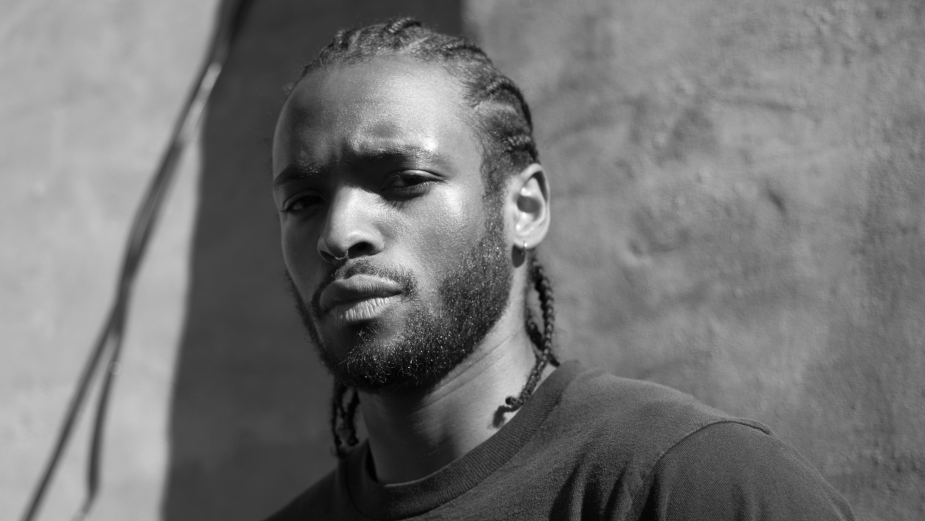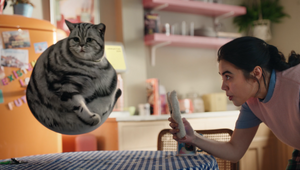
The Directors: Jared Malik Royal

Jared Malik Royal is a visual artist creating work that applies a surrealist approach to human centred storytelling.
He began his career as a music producer, photographer and model, and you can still see him and his work in destinations like Cultured, Office Magazine and British Vogue. As a director, his work spans commercials, music videos and live performance.
Through collaboration with brands, agencies and creative partners the results of these ideas marry highly evocative imagery with raw emotion.
Name: Jared Malik Royal
Location: Brooklyn, NYC
Repped by/in: RSA Films
LBB> What elements of a script sets one apart from the other and what sort of scripts get you excited to shoot them?
Jared> I love a script that leaves room for my interpretation as a director and imagination in execution.
LBB> How do you approach creating a treatment for a spot?
Jared> Starting first, I look to find an emotional connection to the material.
Thinking about “what about the concept relates to my values or experiences?” usually helps create the most authentic work I can stay passionate about.
Once there’s a line of relation that’s established I pull as many references as I can to build the visual and technical foundation.
For a lot of ideas there aren’t any references So I’ll sketch out boards of what things can look like, flows of our camera, etc.
Then it’s about filling in the gaps that visuals can’t convey with the writing to translate the ideas and build as complete a map of where we’re going as possible.
I like to think the job starts from the first call so I want to make sure a treatment is an extension and reflection of what it’s like to work with me: thoughtful, engaging, and simple.
LBB> If the script is for a brand that you're not familiar with/ don’t have a big affinity with or a market you're new to, how important is it for you to do research and understand that strategic and contextual side of the ad? If it’s important to you, how do you do it?
Jared> I try my best to put myself in the mind of the targeted viewer / audience and if possible talk with people that might have more of an understanding or familiarity of the brand.
What do they like about it? Why is it important to them?
Research is important but the only way to get a real human understanding and valid perspective is to get out of our own heads and into people’s real lives.
LBB> For you, what is the most important working relationship for a director to have with another person in making an ad? And why?
Jared> Everyone involved plays a vital role in creating the ad, starting with the brand and agency team who I keep an open channel of communication with.
The relationship with me and the DP is very important and sets the foundation for the effectiveness of the idea.
Regardless of the post process or anything else, the execution relies upon how aligned me and the DP are with our vision.
What does the camera placement tell us? How are we lighting to reflect feelings and mood? What movements are we capturing to tell the story? Who’s on screen when and why? etc.
LBB> What type of work are you most passionate about - is there a particular genre or subject matter or style you are most drawn to?
Jared> I love work that’s aiming to inspire or challenge the thinking of the viewer and especially work that intends to visually or technically push the boundaries of film as a medium.
Subject matter wise - I’m drawn to work that weaves esoteric wisdom in a modern context, social commentary, and dark humour.
Those themes are universal to genres but specifically I’m a huge fan of science fiction, drama and suspenseful action.
LBB> What misconception about you or your work do you most often encounter and why is it wrong?
Jared> I think I’m often perceived as a bit edgy and serious but I really appreciate comedy. I think when done well it can be the most intelligent form of art.
LBB> What’s the craziest problem you’ve come across in the course of a production – and how did you solve it?
Jared> A hazer (and allegedly an artist smoking indoors) set off a fire alarm on a music video and the fire department showed up in full gear.
Luckily, they didn’t mind playing as extras haha.
LBB> How do you strike the balance between being open/collaborative with the agency and brand client while also protecting the idea?
Jared> My job is often to make sure we all stay focused on making something that stays true to the ethos of the original idea.
Through the production process we can be bombarded with so many unexpected changes and circumstances out of our control.
- Listening to what they need and want without them always directly saying what they want and who the brand is.
- If you really listen they’ll tell you who they are and what their dreams are for the direction.
- Connecting their ideas in practicality.
- See the bigger picture and step back to see ourselves. See ultimately what’s best for everyone.
I try my best to translate the new what if’s we’re faced with to the meaning of the spot and the overall direction of a brand or concept, and to stay the course of the thing we love about the piece with passion and excitement.
LBB> What are your thoughts on opening up the production world to a more diverse pool of talent? Are you open to mentoring and apprenticeships on set?
Jared> More diversity in perspectives can only lead to new ideas and better ways to connect with all the different kinds of people in the world.
I’m excited to see tools making story telling more accessible to a wider range of people to create a broader range of unique concepts.
Whenever a set permits I make sure to have as many people interested in learning around. It helps to keep me accountable but also to learn from different perspectives?
New perspectives. Sometimes there are dogmatic ways of doing things in film that we don’t question, so I like keeping fresh minds around. They can help reveal more effective ways of doing things.
LBB> How do you feel the pandemic is going to influence the way you work into the longer term? Have you picked up new habits that you feel will stick around for a long time?
Jared> It’s forced me to be more resourceful and quicker in my ability to problem solve. It’s proven that adaptation is one of the most important skills to have today.
It’s trimmed the fat from any kind of unnecessary processes or blockages we think exist in creating. It’s inspired so much self-started content and also greater care for the lives and well-being of crew on set.
LBB> Your work is now presented in so many different formats - to what extent do you keep each in mind while you're working (and, equally, to what degree is it possible to do so)?
Jared> We have to accept that messages are going to be digested and presented in different ways. We have to make compromises when it comes to the importance of different shots or meanings in the work.
It’s important to understand the value in each format and find strength in different versions of the idea as it’s presented.
We’ve got to accept that different tools will be necessary for each format - one format's strength might come from a specific kind of shot, another might benefit from specific sound design, etc.
It’s like elevating from 2D linear thinking to 3D holistic understanding of a concept.
LBB> What’s your relationship with new technology and, if at all, how do you incorporate future-facing tech into your work?
Jared> I especially like how technology has allowed the pre-production process to create very detailed visions of what’s possible - everything frompre-vis LIDAR CGI scanned set spaces to AI rendered character designs. We can now be very clear with what it is we’re making on the front end.
I’m currently exploring more of how worlds and ideas can be expanded through emerging tech like NeRF, which transforms 2D photos into photo realistic environments, or reactive algorithms through languages like openFrameworks.
These technologies can potentially be used as really interesting storytelling elements and stylistic choices.
Filmmaking is a sport that has a parallel relationship with the tools of technology and it’s necessary to evolve with it.
LBB> Which pieces of work do you feel really show off what you do best – and why?
Jared> HEAL - this was a situation that required me to make something visually engaging for a rather abstract subject: Light healing therapy. I love the subliminal nature of the edit.
WITBA - the subject matter was a bit risqué but needed to be captured in a way that still felt tasteful and captivating - shocking and raw but still very simple, classy, and elegant.
No Mask - We had a fun time bringing in a wide range of cast and styling with unhinged creativity in expressing their personalities on screen. I love work that feels rhythmic, and dynamic but still ultimately cohesive.
Bryan Senti - With this I wanted to tell a story with no words, we treated each angle in the same way the music reflects different emotions. It required us to imagine the different ways visual interpretations of sound can mimic the layers of music without becoming too repetitive or flat.















